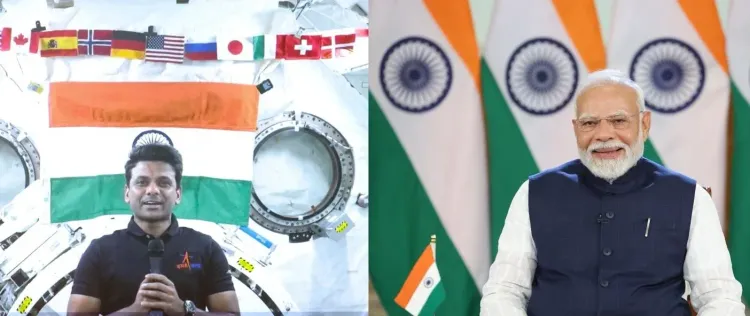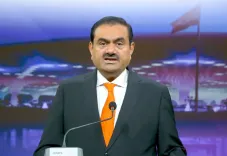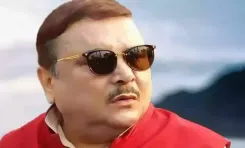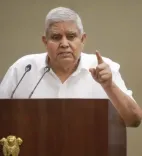How Does India Look from Space According to Astronaut Shukla?

Synopsis
Key Takeaways
- Shubhanshu Shukla is the first Indian astronaut at the ISS.
- The journey symbolizes India's aspirations in space exploration.
- Experiments conducted aim to benefit health and food security.
- Shubhanshu's experiences highlight unity beyond borders.
- Mindfulness and science are essential for success in space.
New Delhi, June 28 (NationPress) The Prime Minister, Narendra Modi, engaged in a videoconference with Group Captain Shubhanshu Shukla, the esteemed Indian astronaut who made history as the first Indian to travel to the International Space Station.
The Prime Minister highlighted that while Shubhanshu is currently the furthest from India's land, he remains deeply connected to the hearts of all Indians. He mentioned that Shubhanshu’s name is inherently auspicious and his journey signifies the dawn of a new chapter for India.
PM Modi remarked that although it was a dialogue between two individuals, it encapsulated the passion and excitement of 1.4 billion Indians. He conveyed that the words shared with Shubhanshu carried the collective spirit and pride of the nation, extending his sincere congratulations and best wishes for representing India in space.
Inquiring about Shubhanshu’s condition aboard the space station, the astronaut expressed gratitude for the well wishes, stating that he was in good health and deeply touched by the love and blessings he received.
Describing his experience in orbit, Shubhanshu called it a profound and unique journey, reflecting not only his personal aspirations but also the broader ambitions of countless Indians. He shared that his journey of 400 kilometers from Earth to space symbolizes the dreams of many.
Recalling his childhood dreams, Shubhanshu shared that he never envisioned becoming an astronaut, but under the leadership of the Prime Minister, today’s India is making such dreams a reality. He expressed immense pride in representing his country in space.
With a light-hearted touch, PM Modi noted that despite being in a gravity-free environment, Shubhanshu remains grounded. He humorously asked if the carrot halwa Shubhanshu brought from India had been shared with his fellow astronauts.
Shubhanshu replied that he had indeed brought several traditional Indian delicacies to the space station, including moong dal halwa and aam ras, intending to introduce his international colleagues to India's rich culinary traditions.
He recounted that they enjoyed these dishes together, which were well-received, with some astronauts expressing a desire to visit India to experience these flavors firsthand.
PM Modi mentioned that the act of circumambulating or parikrama has been an important Indian tradition for ages, and now Shubhanshu has the rare opportunity to perform parikrama of Mother Earth itself.
He asked Shubhanshu about his current orbit over Earth. The astronaut explained that while he didn’t have the exact location at that moment, earlier he had glimpsed Hawaii from the window.
Shubhanshu shared that they complete 16 orbits daily, witnessing 16 sunrises and sunsets—a breathtaking experience. Although traveling at nearly 28,000 kilometers per hour, the speed is imperceptible inside the spacecraft, yet it symbolically represents India's rapid progress.
Shubhanshu revealed that upon entering orbit and observing the vastness of space, the most striking realization was the view of Earth, where borders disappear and the unity of the planet is evident.
He commented that when viewed from space, India appears truly grand and majestic, embodying the spirit of unity in diversity that India stands for.
Highlighting his unique experience as the first Indian aboard the International Space Station, PM Modi inquired about the difference between his Earth training and the actual conditions in space.
Shubhanshu explained that while he was prepared for zero gravity, the reality of microgravity presented unexpected challenges. Even simple tasks became complex, and he humorously mentioned having to strap his feet down to avoid floating away.
He noted that sleeping in space can occur anywhere, as orientation becomes irrelevant, and adjusting to this new environment takes time, yet it harmonizes science with wonder.
When asked about the benefits of meditation and mindfulness, Shubhanshu affirmed PM Modi's belief that 'science and spirituality are twin pillars of India's strength.' He indicated that this mission is just the beginning of a much larger journey for India.
Envisioning a future where many more Indians will go to space, including establishing Indian space stations, he emphasized the importance of mindfulness in maintaining clarity and calmness in such high-pressure environments.
Quoting a wise Indian saying, he stated that one cannot eat while running, highlighting that a calm mind leads to better decisions. He shared that combining science with mindfulness greatly aids adaptability in challenging conditions.
The Prime Minister asked if any of the ongoing space experiments would benefit agriculture or health on Earth. Shubhanshu responded that Indian scientists have devised seven unique experiments for the space station.
He elaborated that the first experiment, scheduled for that day, focuses on stem cells, aiming to test whether specific supplements can prevent muscle loss in a zero-gravity environment—a study that could greatly benefit the elderly on Earth.
Another experiment aims to grow microalgae, which, despite their small size, are highly nutritious. Successful methods developed in space could significantly enhance food security on Earth.
He emphasized that conducting experiments in space allows biological processes to accelerate, yielding faster results compared to Earth.
PM Modi noted that following the success of Chandrayaan, there is a renewed interest in science and space exploration among India's youth, and Shubhanshu Shukla's journey further fuels this enthusiasm. He remarked that today’s children are not just looking at the sky; they now believe they can reach it, forming the basis for India's future space endeavors.
When asked what message he had for the youth, Shubhanshu urged them to embrace the bold direction the country is taking. He stressed that achieving dreams requires commitment from every young Indian, and there are multiple paths to success, with perseverance being the common factor.
The Prime Minister expressed confidence that Shubhanshu's words would resonate with the youth. He assigned 'homework' to move forward with Mission Gaganyaan, build India's own space station, and achieve a Moon landing with an Indian astronaut. He asserted that Shubhanshu’s experiences would be invaluable for these endeavors.
Shubhanshu confirmed that he has been absorbing lessons throughout his training and mission, which will be essential for India's upcoming space projects. He added that his international colleagues expressed interest in participating in Gaganyaan, to which he optimistically replied, 'Very soon.'
Expressing gratitude for the opportunity to speak with the Prime Minister and through him, with 1.4 billion citizens, Shubhanshu emphasized that this mission is a collective achievement for the whole country.
He concluded with a heartfelt message that 'the sky has never been the limit'—not for him, nor for the youth of India. He encouraged young people to hold onto this belief as they shape their futures and that of the nation.
He shared that the Indian national flag behind him was raised only after his arrival at the International Space Station, making it a profoundly meaningful moment, filled with pride for India’s presence in space.
PM Modi extended his best wishes to Shubhanshu and his fellow astronauts for the success of their mission, emphasizing that the nation eagerly awaits his return and encouraging him to take care of himself.
He urged Shubhanshu to continue honouring Maa Bharati and conveyed his good wishes on behalf of 1.4 billion citizens, concluding with profound appreciation for the tremendous effort that brought Shubhanshu to such heights.






